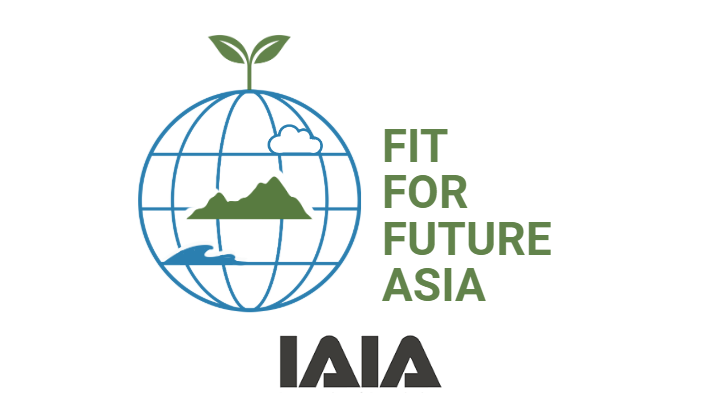
Fit for Future Asia: The National Safeguarding of Global Commons and Planetary Boundaries consists of four pre-recorded sessions that will be released over several weeks. Each session will showcase actionable strategies that align national development goals with the global imperative of safeguarding shared resources. The series will culminate in a live Q&A session with available presenters in July or August, allowing participants to engage with speakers, discuss collaborative opportunities, and consider how domestic actions can have far-reaching impacts on Earth and Human systems.
Please note: Pre-registration is required to join the live Q+A in Week 5. Register here.
The forum features pre-recorded webinars that will be freely available below. New webinars will be uploaded below, and you can access the videos directly on this page. No registration is required for Weeks 1-4. However, registration is required for the live Q&A session in Week 5.
Focuses on improving the integration of environmental assessments with broader systems thinking, featuring innovative regulatory approaches like China’s “Three Lines and One Permit” policy.
Explores how data and technology are used to support sustainability goals, with examples from smart cities and planetary boundary management.
Highlights regional strategies for low-carbon energy transitions through case studies in Southeast Asia and Thailand.
Examines how countries like India and Nepal are responding to climate impacts through both policy frameworks and grassroots, community-led initiatives.
A live session for participants to engage with experts. Register here.
The Fit for Future Asia Virtual Forum Series and Program is an initiative designed to explore how domestic policies and programs in Asian countries are addressing impacts on the global commons and respecting planetary boundaries. The series aims to showcase actionable strategies that align national development goals with the global imperative of safeguarding shared resources such as the atmosphere, oceans, and biodiversity, necessary to sustaining life on Earth.
The series is co-organized by the International Association for Impact Assessment (IAIA) and The Chinese University of Hong Kong (CUHK). The primary organizers are Prof. Yuan Xu of CUHK and Weston Fisher of the Fit for Future Initiative, both of whom are with IAIA.
By focusing on innovative approaches in data infrastructure, spatial planning, and Global Commons precautionary risk management, the series will highlight how domestic actions can have far-reaching impacts on Earth and Human systems. It will also emphasize the need for systemic change to operate within planetary boundaries – the biophysical limits that define a safe operating space for humanity – and prevent the breach of tipping points while advancing climate resilience and low-carbon development.
This initiative provides a platform for comparative learning, with case studies from mainly Asian countries as well as countries on other continents. Each session will examine how domestic policies, tools, and innovations can collectively contribute to mitigation of global commons impacts and mitigation/regeneration plans. The series also focuses on how impact assessment (IA) can play a central role in shaping policies and programs to address the interconnected challenges of climate change, global commons protection, and planetary health.
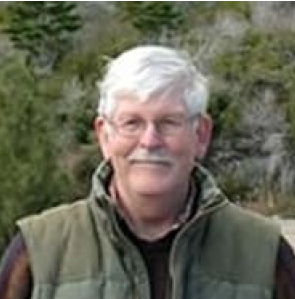
Wes Fisher has over 30 years’ experience as an IA practitioner and capacity development professional in less-developed countries, including time living in Uganda, Kenya, Somalia, Botswana and Lesotho. He was also a Principal with the Cadmus Group, an environmental consulting firm in Massachusetts. He joined the International Association for Impact Assessment (IAIA) in 2002. He received IAIA’s Outstanding Service Award in 2014 and 2022 and served as Co-chair of the Climate Change Section for over 10 years. He was a key organizer of two IAIA Climate Change symposia at the World Bank, and in Aalborg, Denmark in 2010 and instrumental in the development of IAIA’s Climate Change Action Plan. He is currently co-coordinator of a group of IAIA members promoting Earth and Human Systems impact assessment and mitigation/restoration planning. His career has focused heavily on EIA capacity development for NGO’s and development institutions (e.g., as trainer/facilitator for 28 courses in 21 countries since 1995). He holds a Master of Science in geology and Bachelor’s in biology from Stanford University.
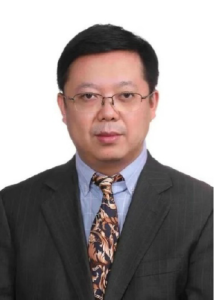
Prof. Dong Zhanfeng is currently working at the Chinese Academy for Environmental Planning (CAEP) directly under the Ministry of Environment and Ecology (MEE), acted as the director of the Environmental Management and Policy Institute(EMPI).He is mainly engaged in resources and environmental management, environmental economics and policy. He acted as the council or committee membership of the international and domestic academic groups, like the chairman of the Chinese Society of Environmental Economic. He has presided over more than 40 national science and technology projects and presided over more than 10 international cooperation projects funded by UNEP, ADB etc. He won the first prize of national environmental protection science and Technology Award. He is the key expert in 30 national eco-environmental planning and legislative policies. He has published more than 100 academic papers in important academic journals at home and abroad, published more than 10 books.
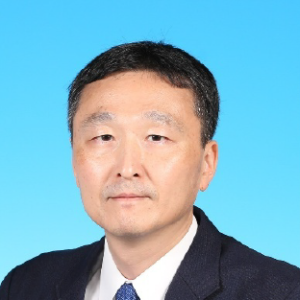
Masaru Yarime is an Associate Professor at the Division of Public Policy and the Division of Environment and Sustainability and the Co-Director of the AI Ethics and Governance Lab at the
Hong Kong University of Science and Technology. He also has appointments as an Honorary Associate Professor at the Department of Science, Technology, Engineering, and Public Policy at University College London and a Visiting Associate Professor at the Graduate School of Public Policy at the University of Tokyo. His research explores data-driven innovation to address sustainability
challenges and implications for public policy and governance. He serves on the editorial board of international journals, including Sustainability Science, Environmental Science and Policy, Environmental Innovation and Societal Transitions, Frontiers in Sustainable Cities – Innovation and Governance, and Data & Policy. He received a B.Eng. in Chemical Engineering at the University of Tokyo, an M.S. in Chemical Engineering at the California Institute of Technology, and a Ph.D. in Economics and Policy Studies of Innovation and Technological Change at Maastricht University.

Michael Spencer is an Adjunct Senior Research Fellow at Green Lab, an impact lab of the Monash Business School in Melbourne, where he works on ways to accelerate implantation of climate adaptation. Michael has taught sustainability for business, geopolitics and business globalisation and, international institutions. He spent 20 years establishing or working with multi-stakeholder social and environmental standard-setting and labelling organisations. He was part of a small group that formed the global Alliance for Water Stewardship which he chaired for its first decade. Earlier, he worked as part of the global leadership team at the Forest Stewardship Council (FSC) and established FSC in Australia as its first CEO. Prior to that, he built a distinguished career in business, government and the media; he was the first head of CSR at National Australia Bank, Vice-President Communication at BHP Billiton and senior advisor to the Premier of Victoria. His PhD explored the role of governance in managing human interface with nature.
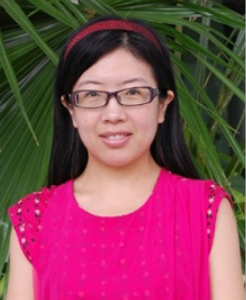
Dr. Yao Lixia is a Senior Research Fellow with the Energy Studies Institute, National University of Singapore. She did her PhD at the S. Rajaratnam School of International Studies, Nanyang Technological University in Singapore. She has a Bachelor’s degree from Dalian Maritime University, China, and a Master’s degree from Vrije Universiteit Brussel in Belgium. She has done research on the quantitative measurement of energy security, the impacts of China’s macroeconomic reforms on its energy sector, and the energy security and energy policies of Southeast Asia. She has been leading a research project on decarbonization strategies of several key economies across the world. Her current research covers China’s Belt and Road Initiative, China’s energy transition and energy governance, and decarbonization in Southeast Asia and Northeast Asia.
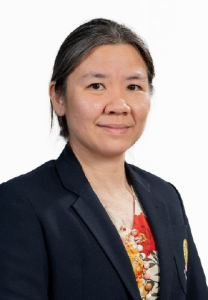
Dr. Siripha Junlakarn is part of the Energy Policy and Economics Group at Chulalongkorn University’s Energy Research Institute. Her recent work explores solar policy and energy transition, with a focus on the techno-economic issues of distributed generation, especially solar PV. She is also interested in the forces and trends that are advancing energy transformation.
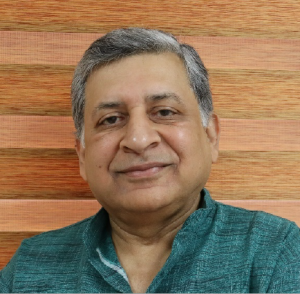
Shreekant Gupta is a scholar and policy expert on economics, environment including climate change and urban affairs. At present he is Visiting Senior Fellow, Centre for Social and Economic Progress, New Delhi and Executive Education Senior Fellow, LKY School of Public Policy at National University of Singapore. Earlier he was Professor at Delhi School of Economics, University of Delhi, Director, National Institute of Urban Affairs, New Delhi and also worked as an economist in the Environment Department of the World Bank at Washington DC.
Prof. Gupta is an author of the 5th and 6th Assessment Reports of the Intergovernmental Panel on Climate Change. He has a PhD in Economics from the University of Maryland and a Masters from the Delhi School of Economics. He was Fulbright Fellow at the Massachusetts Institute of Technology (MIT) and Shastri Fellow at Queens University, Canada.
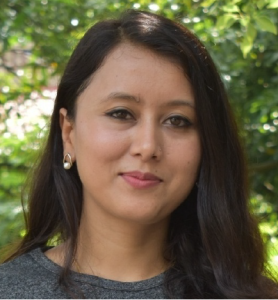
Arati Poudel, originally from Nepal, is a PhD student in the Department of Geography and Resource Management at the Chinese University of Hong Kong. She spent a decade working at the intersection of research and advocacy in roles such as Research Associate at the Hong Kong University of Science and Technology and Senior Research Officer at Digo Bikas Institute, Nepal. Arati is passionate about advancing community-led solutions and has shown this commitment through research, advocacy, community learning exchanges and sharing of case studies in both local and global spaces, including COP26, COP27, andCOP28. With a background in climate science and a strong interest in addressing intersectional climate change issues at the local scale, her research now focuses on how climate extremes, especially too much and too little water, are being addressed in the Ganges Basin of Nepal and India and how communities and civil society are leading these efforts.